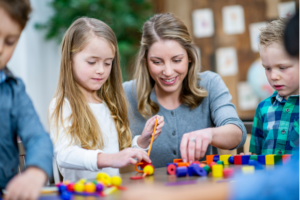Feature: The power of creative therapies to help adopted children recover from trauma
Madeline Aslan discusses the power of creative therapies to help adopted children recover from trauma.
In the UK, many adopted children will have comprehensive psychological difficulties caused by early life trauma. They will have experienced separation, loss, neglect or abuse, and may have developed unhelpful coping strategies. The impact of trauma is wide-ranging and can affect an adopted child’s ability to form secure relationships and cause social and emotional issues including attachment disorders, anxiety, speech and language difficulties, and learning disabilities.
The Adoption Support Fund (ASF) was established in 2015 to contribute towards necessary therapeutic input for adoptive families. Having supported up to 36,000 children so far, this funding has proven to have a positive impact on a child’s behaviour, emotional wellbeing, as well as family relationships. In the recently published Adoption Strategy 2021, the government has recognised the value of therapeutic support and is committed to building on this success.
Adopted children can often find talking therapy difficult to engage with as they may not have the language for processing or embracing traumatic experiences. As primarily non-verbal modalities, music and art therapy are considered to be viable alternatives and can be used to support people of varying needs.
Creative therapy can be helpful for children who do not have the necessary vocabulary to articulate thoughts, sensations, emotions, or perceptions about the nature of traumatic memories stored in the brain. Non-verbal communication is our most primal form of communication – it is how parent/carer and child connect in the first moments of life.
Improvisational music therapy can reach traumatised children so profoundly. In a boundaried and safe environment, music is experienced physically, and as emotion is so often held in the body it can prove to be a powerful resource for children who are beginning to adjust to their traumatic experiences.
The therapist attunes to the child musically and aspects of memory that are not reachable verbally can be communicated. Art therapy offers another tactile approach; children can physically manipulate materials to create images which can act as a connection between internal and external world and overwhelming experiences can be reframed, allowing a child to feel more in control. This is explored and shared with the art therapist. Creative therapists can recapture what has been missed in early relationships and support adopted children to develop healthy attachments.
Creative therapy can often be a very useful first point of call when working with adopted children and these early interventions may prepare families to future engage with other types of therapeutic support that can strengthen these early gains. Coram’s Creative Therapies and Parenting team is multi-disciplinary, comprising of a variety of therapeutic professions such as art therapists, music therapists, psychologists, and family therapists. Sharing cases, information, and through reflective practice, we use the skills and experience of therapists from different disciplines and with united concern for the wellbeing of the families referred to our service, we adjust therapeutic models accordingly.
Harmony Group is an early intervention co-facilitated music therapy group for children under five who have been through court proceedings, it is offered to both adopted children and those living under special guardianship orders. This eight-week group is focused around early-relationship building and aims to enhance the quality of parent-infant interactions. In addition to weekly music therapy session, practitioners think together with caregivers about ongoing therapeutic interventions that may be support these strengthening attachments.
Often adoptive parents feel disempowered and a fear of failure can lead them to blame the child for disturbance of existing relationships. At Coram, an Infant Mental Health Practitioner works alongside caregivers, imparting understanding about the nature of the child’s experience. There is a need to develop knowledge and understanding of the impact early trauma might have had on their children. They fundamentally need to acquire new parenting skills. The practitioner will work to build on the strengths of the caregivers own nurturing instincts and combines these with psycho-education and sensitive parenting principles.
Family therapy can be helpful in a broad range of situations and circumstances. Within a couple, each person brings their own expectations as to how one should parent. An adopted child has often experienced significant trauma and their needs are complex. Therefore the parents need to make changes to their expectations of how to parent based on what their child needs.
Timely support and early intervention has a proven positive impact on an adoptive family. A multi-disciplinary approach to therapeutic support is crucial and social workers who refer families for interventions through the Adoption Support Fund are giving children opportunity to process early trauma whilst supporting adoptive parents to learn and change in order to create stability for their children.
Comments
Subscribe
0 Comments
















